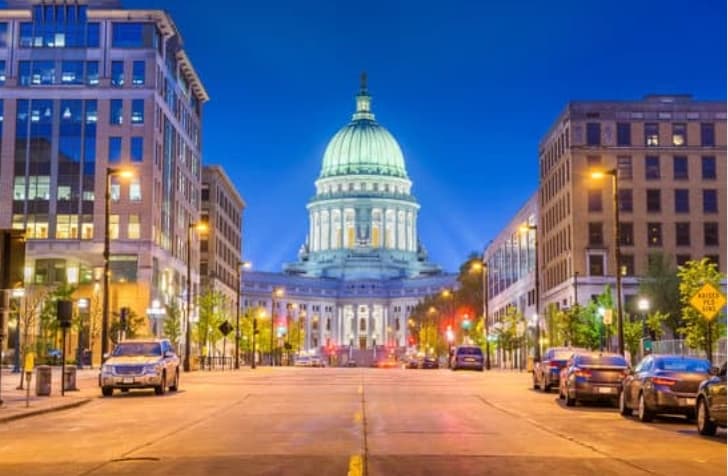
The University of Wisconsin–Madison recently released its supplemental essay for the 2025-2026 admissions cycle. This article explains what they seek in applicant responses, guiding you to write an essay that will gain admission.
Why Wisconsin-Madison & Major Interest
"Tell us why you would like to attend the University of Wisconsin–Madison. In addition, please include why you are interested in studying the major(s) you have selected. If you selected undecided, please describe your areas of possible academic interest."(Maximum 650 words; 300-500 words recommended)
My journey into computer science began not with a video game, but with a spreadsheet. My mom runs our local food pantry, and for years she tracked donations in a messy, handwritten ledger. Seeing her frustration, I spent a summer teaching myself Python and basic database management to build a simple app that could log inventory, track expiration dates, and generate reports. The moment she used it to prevent a whole shelf of canned goods from expiring was when I knew I had found my passion. It was not just about the logic of the code. It was about using that logic to solve a real human problem. This is why I am so drawn to studying Computer Sciences at UW–Madison. I do not just want to learn how to code. I want to learn how to build tools that serve a community. The "Wisconsin Idea," the principle that education should influence people's lives beyond the classroom, is not just a motto to me. It is the reason I started coding in the first place. UW–Madison is the perfect place for me to grow. I am excited by the work being done at the Wisconsin Institute for Discovery, particularly its focus on collaborative, data-driven research that addresses complex challenges. I would love the opportunity to learn from professors like Michael Gleicher, whose work in data visualization could help me turn the food pantry’s raw data into compelling stories that drive donations. I want to take what I learned from that first simple app and apply it on a larger scale. On campus, I hope to join organizations like Code for Good, where I can collaborate with other students who are passionate about using technology for social impact. At UW–Madison, I will not have to choose between my love for technology and my desire to help others. I can do both.
Every summer, I go kayaking on the lake near my house. A few years ago, I started noticing that the water, which used to be clear, was becoming cloudy with thick, green algae blooms. I did not just see a problem. I saw a puzzle. I started taking my own water samples, borrowing a cheap microscope to look at the microorganisms, and reading everything I could find about nutrient pollution. My curiosity about the health of that small lake has grown into a deep passion for understanding the complex systems that govern our freshwater ecosystems. I want to turn this passion into action, which is why I am so interested in the Environmental Sciences major at UW–Madison. Your program stands out because it is not just theoretical. It is rooted in the world-class natural laboratory of the Yahara lakes. The opportunity to study at the Center for Limnology, a place I have only read about in scientific articles, would be a dream come true. I am particularly fascinated by the research of Dr. Emily Stanley on the role of nutrients in aquatic ecosystems, as it directly relates to the questions I have been asking about my own lake. The Wisconsin Idea also deeply resonates with me. I believe that scientific research has a duty to serve the community. I want to do more than just study environmental problems. I want to be part of the solution. At UW–Madison, I hope to get involved with student organizations like the Sierra Student Coalition, working on local conservation issues. I am excited by the prospect of learning from the best and then using that knowledge to protect the natural resources that we all depend on.
My interest in political science began at the dinner table. With a mother from South Korea and a father from rural Iowa, our conversations about current events were always a lively mix of different perspectives. I learned early on that every issue has multiple sides, and that understanding the history and culture behind a person’s viewpoint is the first step to finding common ground. This has fueled my desire to study Political Science and International Studies. I am not just interested in how governments work, but in how people from different backgrounds can work together. UW–Madison is the ideal place for me to pursue this passion. Its location in the state capital provides an unparalleled opportunity to see political theory put into practice. I am excited by the prospect of internships with state legislators or non-profit advocacy groups. These experiences are not just possible, but encouraged. Academically, the strength of both the Political Science department and the International Studies major is a perfect match for my interdisciplinary interests. I am particularly drawn to the Elections Research Center and the work of professors who are studying the very issues of political communication and public opinion that we debate at my dinner table. I want to learn how to move beyond simple disagreement and find data-driven ways to foster productive dialogue. Beyond the classroom, I hope to join the Wisconsin International Relations Association and contribute to discussions about global issues. My personal experience has taught me the value of bridging divides, and I want to bring that perspective to the vibrant and politically engaged community at UW–Madison.
All the best!